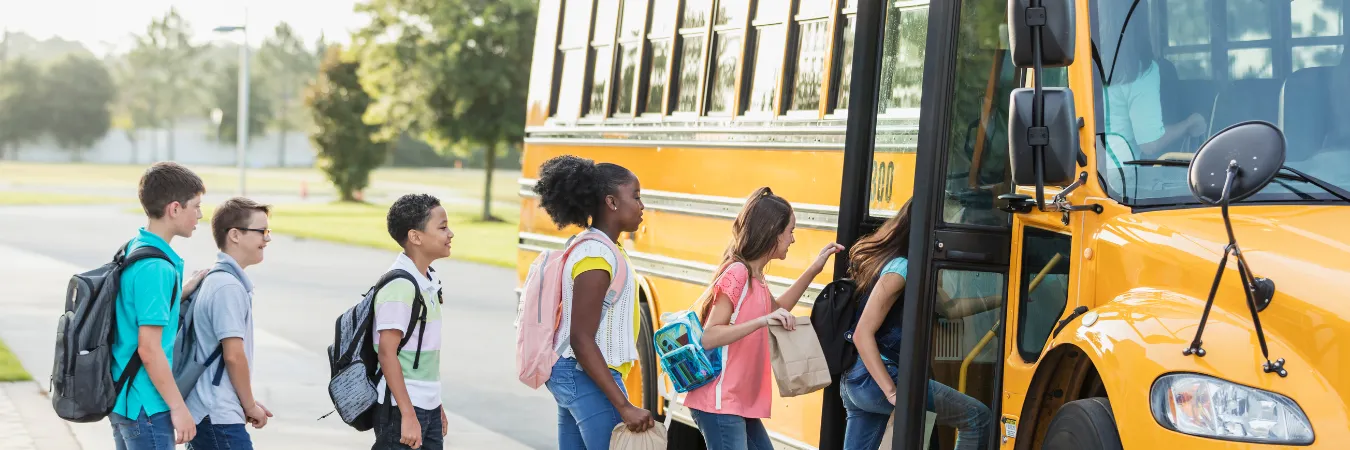
Attendance Support and Resources
Understanding the importance of attendance and knowing what resources are available when support is needed is crucial to student success. When students attend school regularly, they actively participate in learning, build valuable life skills, and prepare for future responsibilities, such as work, college, and other commitments.
Strategies for families
Supporting positive attendance begins with developing good habits to set the foundation for lifelong learning and success, and continues by closely monitoring attendance to keep students on track through graduation.
Know the Facts - Why School Attendance is Important
Did you know?
- Absenteeism in the first month of school can predict poor attendance throughout the school year. Half the students who miss 2-4 days in September go on to miss nearly a month of school.
- Nationally, chronic absenteeism doubled by the end of the 2021-22 school year. It is estimated that nearly one 1 in 3 students are chronically absent (or 16 million vs. 8 million students in the 2018-19 school year).
- Absenteeism and its negative effects start early.
- Poor attendance can influence whether children read proficiently by the end of 3rd grade or be held back.
- By 6th grade, chronic absenteeism becomes a leading indicator of a student dropping out of high school.
- Research shows that missing 10% of the school, or about 18 days, negatively affects a student’s academic performance. That’s just two days each month.
- When students improve their attendance rates, they improve their academic prospects and chances of graduating.
- Attendance improves when schools engage students and parents in positive ways and when schools provide mentors for chronically absent students.
AttendanceWorks Attendance Facts
Build the Habit of Good Attendance Early
What You Can Do
- Set and help maintain regular routines.
- Keep your child healthy and make sure your child has the required immunizations.
- Develop backup plans for getting to school if something comes up. Call on a family member, a neighbor, or another parent.
- Try to schedule medical/dental appointments and extended trips when school isn't in session.
- If your child seems anxious about going to school, talk to teachers, school counselors, or other resources to help make your child feel comfortable and excited about learning.
- If you are concerned that your child may have an illness requiring them to stay home, refer to our When to Keep Students Home webpage or call your school for advice.
- If your child must stay home due to illness, promptly report the absence to the school.
For Elementary Students
- Set a regular bedtime and morning routine.
- Lay out clothes and pack backpacks the night before.
- Introduce your children to their teachers and classmates before school starts.
For Middle and High School Students
- Talk about the importance of showing up to school every day.
- Help your teen maintain daily routines, such as finishing homework and getting a good night’s sleep.
- If your teen must stay home because they are sick, make sure they have asked teachers for resources and materials to make up for the missed learning time in the classroom.
Resources from AttendanceWorks
Help with Staying Engaged and on Track
Help Your Child Stay Engaged
- Find out if your children feel engaged by their classes, and feel safe from bullies and other threats.
- Make sure your teens are not missing class because of challenges with behavioral issues or school discipline policies. If any of these are problems, contact the school and work with them to find a solution.
- Monitor your teen’s academic progress and seek help from teachers or tutors when necessary. Make sure teachers know how to contact you.
- Stay on top of your child’s social contacts. Peer pressure can lead to skipping school, while students without many friends can feel isolated.
- Encourage your child to join meaningful after-school activities, including sports and clubs.
- Notice and support your students if they are showing signs of anxiety.
Resources from AttendanceWorks
Student Attendance Success Plans are designed to help parents track their children’s attendance and work with teachers to set appropriate goals.
Communicate with the school
Stay in the Know
- Know the school’s attendance policy.
- Regularly review your child's attendance to ensure they do not miss an excessive number of school days.
- Seek help from school staff, community agencies, or other resources if you or your child need support.
PWCS Attendance Resources
Attendance Guidelines - Learn about PWCS attendance policies, procedures, and regulations.
When to Stay Home from School - View guidance on when to keep your child home from school due to illness.
Attendance Officer Information - Learn how PWCS attendance officers support attendance.
Dropout Prevention - View information and resources available to students who are in need of dropout prevention assistance.
Additional Resources
Students in Need of Assistance - View many resources available to schools and families to support the academic and social/emotional development of PWCS students.
Community Resources - View contact information for a list of community resources available in Prince William County.
Attendance & School Engagement in Virginia - Learn about how the Virginia Department of Education is addressing chronic absenteeism in schools.
Do you need additional information or resources?
